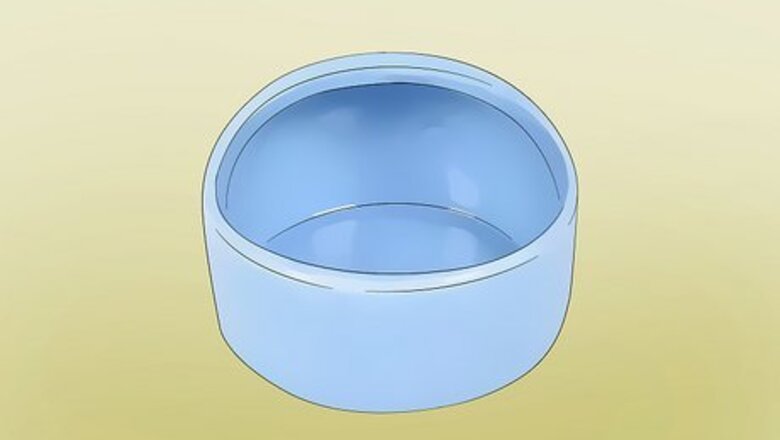
views
Getting Supplies
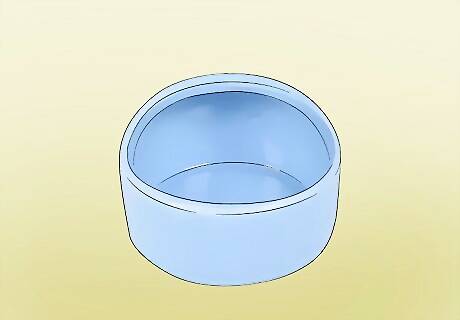
Purchase a food dish if you want to keep your gerbil's cage neat. There are two ways that you can give your gerbil food: either in a dish or by scattering it on the gerbil's bedding. Both ways are perfectly fine for your pet and both have pros and cons. If you put the food in a dish, you will have to keep the dish clean but it will keep the food more contained. Even if you put the food in a dish, the gerbil is likely to pull it out and bury it in its bedding. Pick a dish that is heavy and has low sides. This will allow the gerbil to get the food out of it but the animal will have a hard time knocking it completely over.
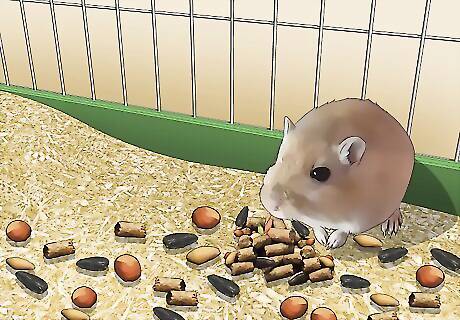
Scatter food if you want your gerbil to forage. If you scatter the food on the animal's bedding it allows the gerbil to use its foraging instinct. However, this method for feeding will be messier. You can also feed the gerbil both in a dish and scattered in the cage. For example, try giving the gerbil its food mix in a dish but give it other food, such as vegetables, by scattering them on the gerbil's bedding.
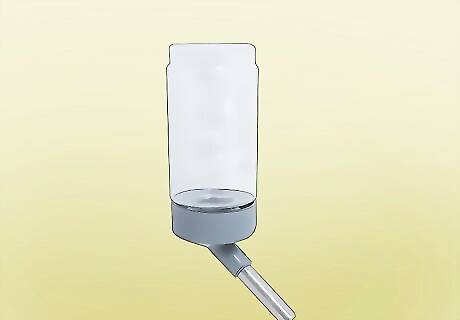
Purchase a water container. When setting up a gerbil's cage you will need to get the proper water container. You should get a water bottle that can attach to the side of the cage that is made specifically for giving water to small rodents. Gerbil food and water dishes should be available at your local pet store or from online retailers. The water bottle should be made of plastic or glass. It should have a sipper tip on the bottom of it that the gerbil can drink from.
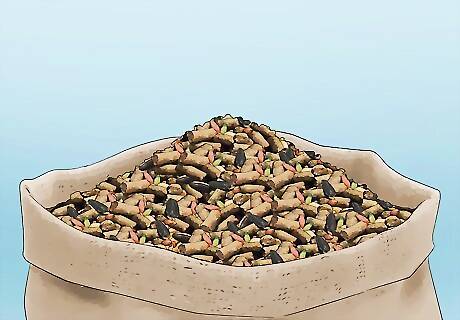
Buy a food mix for your gerbil. The main food that you should give your gerbil is a pre-made mixture of pellets, seeds, grains, and dehydrated vegetables. Pellets are compressed chunks of food that have been formulated specifically to meet your gerbil's nutritional needs. Food mixes that are made for gerbils will be available at your local pet store or from online retailers. If your gerbils have been fed a different kind of feed while at the pet store, gradually introduce the new food by adding more of the new food and taking away more of the old food at each feed time. You do not want to give your gerbil a ton of seeds because they will only eat the seeds and will likely ignore their pellets. This means that the mixture you buy should not have many high fat seeds, such as sunflower seeds.
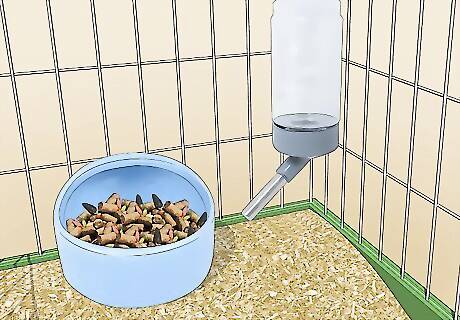
Set up the feeding area in your gerbil's cage. You should put the food and water containers in a corner of your gerbil's cage. They should be placed away from the animal's bathroom area, as gerbils like to keep their bathroom area away from food and water. Your gerbil is likely to move its food around its cage. It will bury food in its bedding and then eat it later. However, keeping the food dish away from the main nesting area just increases the time it takes for your gerbil to make a mess of its cage.
Providing a Balanced Diet
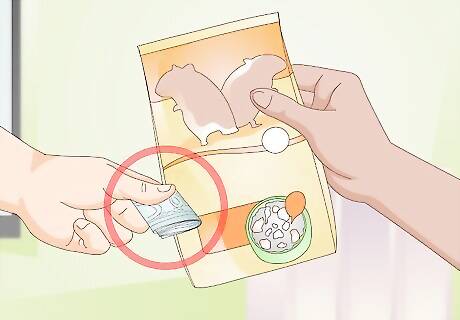
Buy gerbil food. A simple cereal mix is best to begin with, but it's a good idea to research what gerbils can and can't eat so that you know what's best to feed them. Once you've been feeding your gerbils for a while and you know their preferences, then you can adjust their food mix.
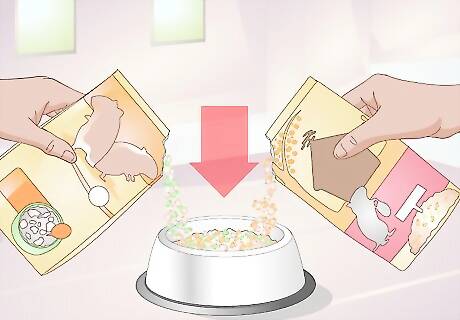
Improve pet store food. To increase the nutritional value of pet store food, you can mix in a lot of different types of foods and supplements. Some examples include: Gerri gerbil tasty mix Pets at Home gerbil food Nature's Touch gerbil food Burgess gerbil food Dried mealworms Dried pasta
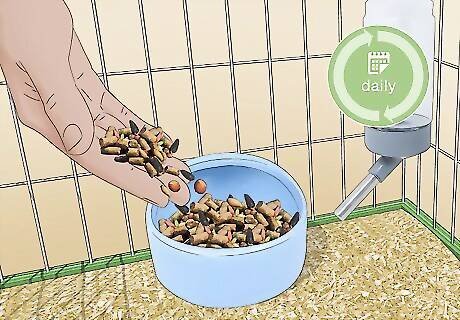
Give your gerbil food mix every day. The amount of food you feed your gerbil can vary widely, although most gerbils eat about a tablespoon every day. As you get used to feeding the gerbil you will get used to how much the animal will eat every day. The goal is to give your gerbil enough to eat but not so much that it eats too much or it stashes food all around its cage.
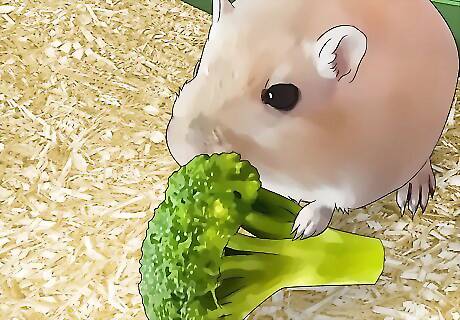
Provide your gerbil with raw vegetables. Offer your gerbil small amounts of a variety of vegetables in order to give it some variety in its diet. Giving little pieces is important so that your gerbil does not eat too much. Gerbils tend to love a wide variety of vegetables but some popular choices include: Peas Small sprigs of broccoli Chunks of carrot Small pieces of lettuce
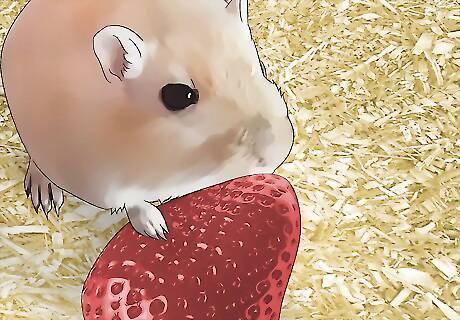
Give your gerbil bits of fruit. Give your gerbil a small piece or 2 of fruit every week. There are a wide variety of fruits that gerbils love to eat, so they will pick it over healthier foods, like their food mix. Because of this, it's important to only give them a little bit. Some fruits you can feed your gerbil include: Apples (no seeds, as these contain cyanide, higher sugar content) Apricot (no pit, high sugar content) Banana (may cause constipation, do not feed if the gerbil is taking antibiotics, higher sugar content) Broccoli (may cause gas) Cabbage (small amounts, rarely, as too much can cause illness, can cause gas) Carrots (higher sugar content) Cauliflower (can cause gas) Celery (only in very small pieces, as the string can be a choking hazard) Corn (higher sugar content) Cucumber Dates (higher sugar content) Endives Grass (avoid ornamental grass) Green beans Kidney beans (must be cooked) Kiwifruit (higher sugar content) Lettuce (small amounts, on occasion, may cause liver problems, never use iceberg) Mango (no pit, higher sugar content) Melon (higher sugar content) Mint Papaya Parsley Peach (no pit, higher sugar content) Peas (higher sugar content) Pear (higher sugar content) Plum (no pit, higher sugar content) Potato (cooked only, raw is toxic) Raspberries (the leaves are edible, higher sugar content) Sage Strawberries (higher sugar content).
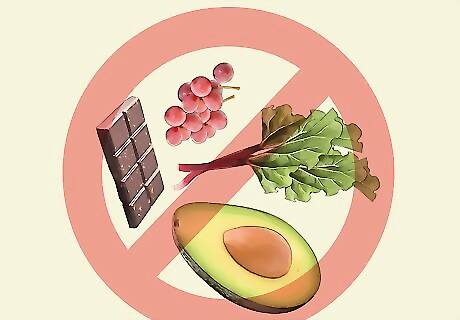
Avoid giving your gerbil foods that are toxic. There are a few foods that you shouldn't give to your gerbil. Specifically, foods that are toxic to gerbils include: Grapes Rhubarb Avocado Chocolate Cabbage Onions
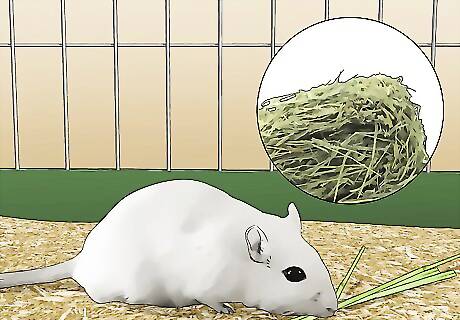
Provide your gerbil with timothy hay. Gerbils benefit from roughage in their diet for enrichment and nutritional reasons. Provide your gerbil with plenty of fresh timothy hay, which will help keep its digestive system running well. It also gives your gerbil a nice snack to munch on throughout the day. You can also use timothy hay as part of your gerbil's bedding.
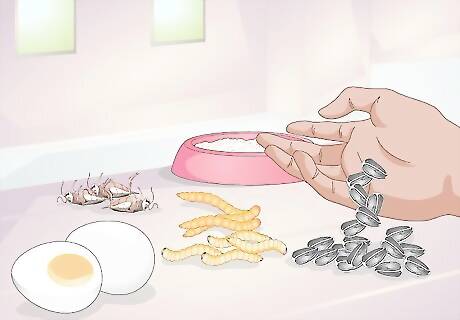
Choose treats for your gerbils. Gerbils love treats, but they should be given sparingly. Some treat ideas include: Baby food (no onion or garlic) Beechnuts (unsalted, higher fat content) Brazil nuts (unsalted, higher fat content) Bread (can get stuck in pouches if too soft) Cashews (unsalted, higher fat content) Cereal (beware of high sugar content) Chicken/turkey (cooked and unseasoned) Cheese (avoid strong cheeses, higher fat content) Crackers (unsalted) Crickets (dead) Dog biscuits (no charcoal/black ones, no onions or garlic) Egg (scrambled or boiled, no seasoning) Fish (cooked and unseasoned) Hazelnuts (unsalted, higher fat content) Mealworms Millet spray Pecans (unsalted, higher fat content) Peanuts (unsalted, roasted, never raw, shelled or unshelled, higher fat content) Pine nuts (unsalted, high fat content) Pistachios (unsalted, higher fat content) Pumpkin seeds (unseasoned, higher fat content) Tofu (packaged only, never raw) Walnuts (unsalted, shelled or unshelled, higher fat content) Yogurt drops
Maintaining Your Gerbil's Diet
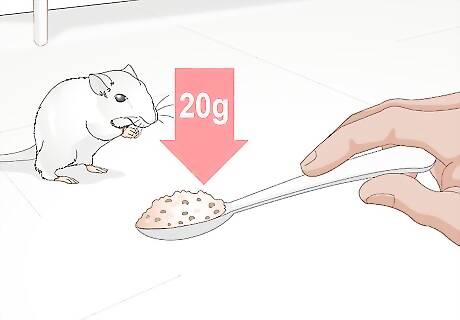
Determine how much to feed the gerbils. Gerbils won't usually eat all their food in one go like cats and dogs do, but usually take a few days to eat all their food. Remember that every gerbil is different and they will all eat at different rates. It's good to give gerbils around 10 to 20 g of food. They usually eat 4 to 10 g a day. Make sure you adapt these measurements if you have more than one gerbil.
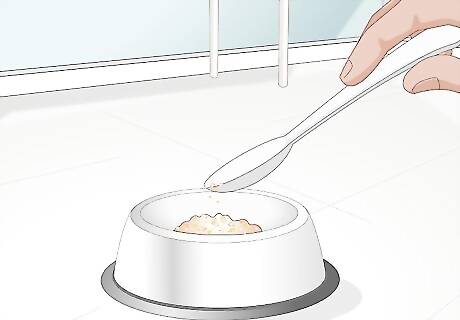
Use an appropriate food dish. Plastic ones are not suitable because the gerbils will chew them and cracks in plastic can harbor germs. A stainless steel or ceramic dish is best.
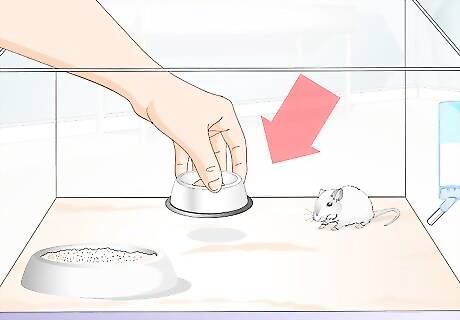
Put their food in their cage or tank. If you have given them fresh fruit or vegetables, ensure that you remove it from their cage after a few hours if they have not eaten it. Never give them too many treats. The occasional pumpkin seed, etc. (see above). When you give them a treat, especially if you have new gerbils, hold it in your hand and wait for them to take it.Feed Gerbils Step 8.jpg They may sniff around your hand to look for anything else. Gerbils don't often bite, but if they do, try not to jerk away suddenly or you'll scare them.
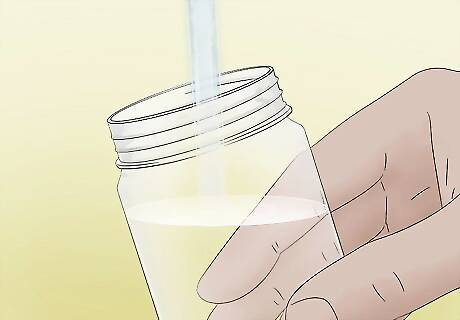
Provide clean water at all times. It is important that your gerbil has access to water whenever it wants to drink some. Check the water level of your gerbil's water bottle daily and be sure that it is freshened every few days. Looking at the water level every day allows you to assess the general amount of water your gerbil is drinking on a daily basis. This will help you to notice if your gerbil is not drinking its normal amount of water.
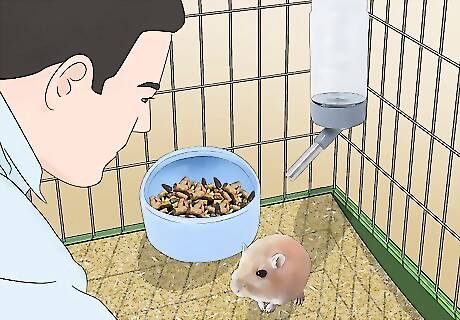
Check your gerbil's food daily. In order to make sure that your gerbil is getting enough to eat, you should check its dishes every day. You should also look around the animal's cage to make sure that the gerbil has not stashed a lot of food in its bedding. This is a chance for you to remove any spoiled food as well, such as the pieces of vegetable you are giving your gerbil.
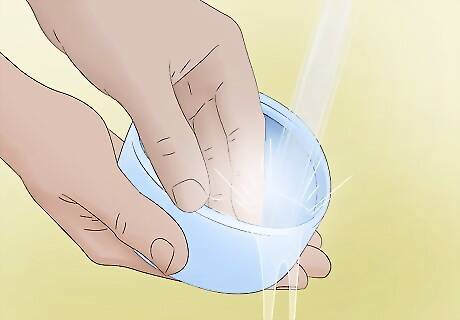
Clean food and water dishes weekly. While you don't have to scrub the food and water dishes every day, it is important to keep them clean. Every week you should remove the dishes and scrub them with soap and warm water. This will help keep the gerbil healthy, as it will remove any bacteria that has begun to grow on the dish. To clean the gerbil's water bottle, put a little soap in it and then fill the bottle with warm water. Use a bottle brush to scrub the inside of the bottle and then rinse the bottle out thoroughly with additional clean warm water. This cleaning can be done during a weekly cleaning of the gerbil's whole cage.
















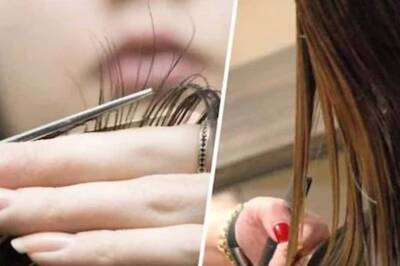



Comments
0 comment